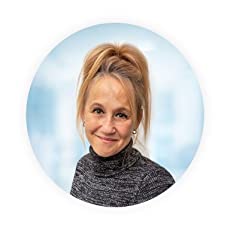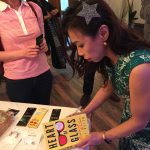 Recently, I read Amanda’s international bestseller set in London, Don’t Come Looking, a standalone novel which features the protagonist, Eva Barnes, and additional characters from Leave Well Alone. It is another psychological thriller that sees Eva eight years on as a police detective. Amanda’s pen name is AJ Campbell. Here she shares with us some absolute gems and truths on The Writing Life.
Recently, I read Amanda’s international bestseller set in London, Don’t Come Looking, a standalone novel which features the protagonist, Eva Barnes, and additional characters from Leave Well Alone. It is another psychological thriller that sees Eva eight years on as a police detective. Amanda’s pen name is AJ Campbell. Here she shares with us some absolute gems and truths on The Writing Life.

Tell us a bit about your current book release.
DON’T COME LOOKING
Would you refuse your friend’s desperate plea for help?
It’s eight years on from the dramatic events of Leave Well Alone, and Eva is now a detective constable on the brink of promotion. When her close friend Marc disappears, his wife Sasha is distraught, and Eva is baffled. Sasha and Marc were happy, the perfect couple, or so everybody thought.
Sasha begs Eva to help her find Marc. But he has appeared at the police station where Eva works and has made a statement. It’s on record – when his family report him missing, Marc doesn’t want to be found.
Eva is torn. She has a professional duty not to get involved, but Sasha and Marc have gone above and beyond over the years to help Eva and her husband Jim through their own troubled times.
Ultimately, friendship and loyalty override Eva’s professional integrity, and she is compelled to use her skills to delve into Marc’s life, even if it means going against Jim’s advice and breaking the police code of conduct. As each day passes, the mystery deepens. What was Marc up to? What made him do the things he did in the months leading up to his disappearance? Things so out of character, Eva struggles to tell Sasha about them….
And then a disturbing discovery changes everything.
Where did you get your story idea from?
I read a newspaper article about a man who walked out on his family and made a statement at the local police station, making it clear he didn’t want to be found. His wife was distraught. It made me question what could drive a family man to such extremes? From there, I started plotting.
How long did Don’t Come Looking take to write?
I started writing Don’t Come Looking while Leave Well Alone was with my editor. I then had to take a break as the pandemic hit. My kids were off school for almost six months, and I had to balance homeschooling while delivering on the publishing schedule of Leave Well Alone. As soon as schools reopened for the Autumn term, I was back to it. So, I wrote it in chunks. In all, it took about five months.
How long did your debut Leave Well Alone take to write?
It took me about five years to write Leave Well Alone, but I also took several creative writing courses during that time.
Do you want each of your books to stand on their own, or are you trying to build a body of work with connections between each book?
Eva, as a character, intrigues me. I want to find out what happens to her as much as my readers, which is why I decided to carry on with her story in Don’t Come Looking. But I think it’s important that each book stands on its own.
I am also working on a cozy mystery series. Again, each book is a standalone, but the characters are the same throughout the series.
How did you decide to write in the present tense and why?
My debut novel Leave Well Alone is written in the past tense. I tried using present tense, but it didn’t work. And vice versa with my second novel Don’t Come Looking. Perhaps this is because the second novel brings Eva’s story up to the present time?
Why did you want to do a Faber Academy course and how did you select Faber over the other courses that you looked at?
I’d had the story idea for Leave Well Alone for quite a few years, but to write a novel, you need to learn the craft – structure, character ARCs, viewpoints, voice, dialogue, research, foreshadowing, revising and editing, to name a few of the skills you need to crack.
Peer critique and tutor guidance are invaluable.
I researched several courses before settling on The Faber Academy. I felt it was the best value for money for providing me with all of these necessary components. I started with two short courses with them, Creating Brilliant Characters and Read like a Writer, before embarking on their Writing a Novel: the first 15,000 words course. I would highly recommend all of these courses.
Have you written works with shorter word counts eg novellas and short stories? How do you find the experience compared to novel writing?
Yes, I wrote a short story (around 12,000 words) last year to showcase my writing to potential readers. It is available for free to anyone who joins my Readers Club via my website www.ajcampbellauthor.com.
What skills and experience from your background in accountancy have helped you or hindered you in the creative life?
They have certainly helped in the publishing side of my writing.
Publishing is a business, and you have to treat it that way.
You have to project manage, budget and take care of the finances, take on sales, marketing and PR, and manage your client base. These are all skills you learn as an accountant, which will help set up and run any small business.
I guess you learn tenacity too. You seek perfection, never giving up until you’ve reconciled to the last penny.
When self-publishing, you need to strive for the same perfection – only putting your best work out there.
I really like hearing the “voice” or viewpoint of Eva Barnes and being in her mind. Even though she is young, I feel that her character is empathetic and mature. How much is the character of Eva Barnes based on yourself?
Eva is an intriguing character. She is driven, passionate, fiercely loyal and wholly relatable. I adore her. After I finished Leave Well Alone, I could leave Eva alone, which is why I carried on her story with Don’t Come Looking. She had a very troubled background, encountering situations she shouldn’t have at a very early age. But she turned her life around. This is where her empathy and maturity came from. Is she based on me? Not intentionally, no!
What 3 aspects of your writing life do you draw creativity from, and what advice would you give writers on being inspired and able to create?
The human mind and how different people react to each other and interact in society fascinates me. I draw inspiration from many facets of everyday life – reading novels and newspapers, people watching Asking, ‘How can that have possibly happened?’ I love to immerse myself in developing threads, plotting and letting my creative energy help my characters evolve.
I would advise writers to write every day.
Even if it’s only a few hundred words – find a quiet place and get those words down! Also, we can never stop learning, so take as many courses as you can.
Where is your favourite place to write, and why?
I find it difficult to write anywhere other than my desk in my little office with my cocker spaniel, Max, by my side.
How long do you write for each day?
Every day is different. I try and write in the mornings and spend the afternoons marketing my books.
Do you ever suffer from writer’s block and if so, how do you overcome it?
I rarely suffer from writer’s block. When I do, I take my dog for a long walk and usually manage to overcome it. I do, however, suffer from procrastination at times. You know, tidying the cutlery drawer, making a list of my lists, kind of thing. When I feel myself starting the next mindless task, I make a cup of tea, sit at my desk and give myself a little pep talk, then open up my current draft.
What was the best money you ever spent as a writer?
I would say there are three things:
- Joining the Faber Academy and taking several of their creative writing courses.
- Getting a professional editor on board.
- Finding a talented book cover designer.
What kind of research do you do?
Research is an integral part of the writing process, and I do spend considerable time on it during the plotting phase. Doing research brings depth to my novels and often sparks new ideas, so it’s well worth the time investment. I carry out most of my research on the internet and with telephone conversations, but I spent many days in London while writing Leave Well Alone to help me with the setting. I’m also grateful for the valuable time I was able to spend with a local police officer to help me with both novel.
Are you a plotter or a pantser?
I was a pantser while writing Leave Well Alone but a plotter with Don’t Come Looking. I will definitely plot all future books, although I think it’s important to be flexible. Stories don’t always follow a defined plot once you start writing.
Why did you decide to self-publish?
I got close to finding an agent for Leave Well Alone, but it didn’t work out. It took me the best part of a year to get that close, and in the meantime, Don’t Come Looking was on the horizon. Securing an agent doesn’t guarantee a publishing contract so it’s a very lengthy process which didn’t sit comfortably with me. I looked into self-publishing, and I thought that I could self-publish both books by the time I found an agent and then a publisher. I also enjoy the autonomy I have over my work and publishing schedule. I’m delighted that Leave Well Alone became a bestselling novel.
Can you tell us two things about yourself that your readership may be unaware of?
When I was sixteen, I quit A levels because I didn’t enjoy the subjects which I had chosen. I switched to a BTEC in Business and Finance and went on to qualify as an accountant. It taught me that not every path is right for everyone. We are all individuals with our own journeys.
In addition to my writing, I run a small online marketing company with my husband, and I am a fulltime carer for my severely disabled son.
Who or what inspires you to keep writing?
My passion for the craft inspires me to keep writing. I love the eureka moment when a plot comes together, and then I enjoy fleshing out the resulting scenes. When my debut novel Leave Well Alone became a bestseller, I jumped for joy. All those 5 am starts and midnight finishes paid off. I hope that my second novel Don’t Come Looking has the same success.
Who are your favourite authors?
I’m a big fan of Agatha Christie and Jodi Picoult. I also enjoy Claire Mackintosh, Shari Lapena and Lisa Jewell.
What were your favourite three reads of 2020?
I run a virtual book club, AJ Campbell’s Reading Corner, and we read some great titles during 2020. I particularly enjoyed Small Great Things by Jodi Picoult, Daisy Jones and The Six by Taylor Jenkins Reid, and Three Hours by Rosamund Lupton.
Do you read your book reviews? How do you deal with bad or negative ones?
Yes, I read them all. I use the good ones for social media posts. The negative ones, I try to ignore, although sometimes it’s hard. There’s no getting away from it, they hurt. I appreciate not everyone is going to like my work, and I’m OK with that. And, as my husband tells me, ‘Focus on the hundreds of five-star reviews you get, not the few negative ones.’ Of course, he’s right.
Thank you Amanda! That was very enlightening, enjoyable and I could see that we agree on many levels. I think I do need the two Ds: a dog and discipline.
Buy Don’t Come Looking here. Please do connect with Amanda. If you enjoyed this blog post in my The Writing Life series, please share.


